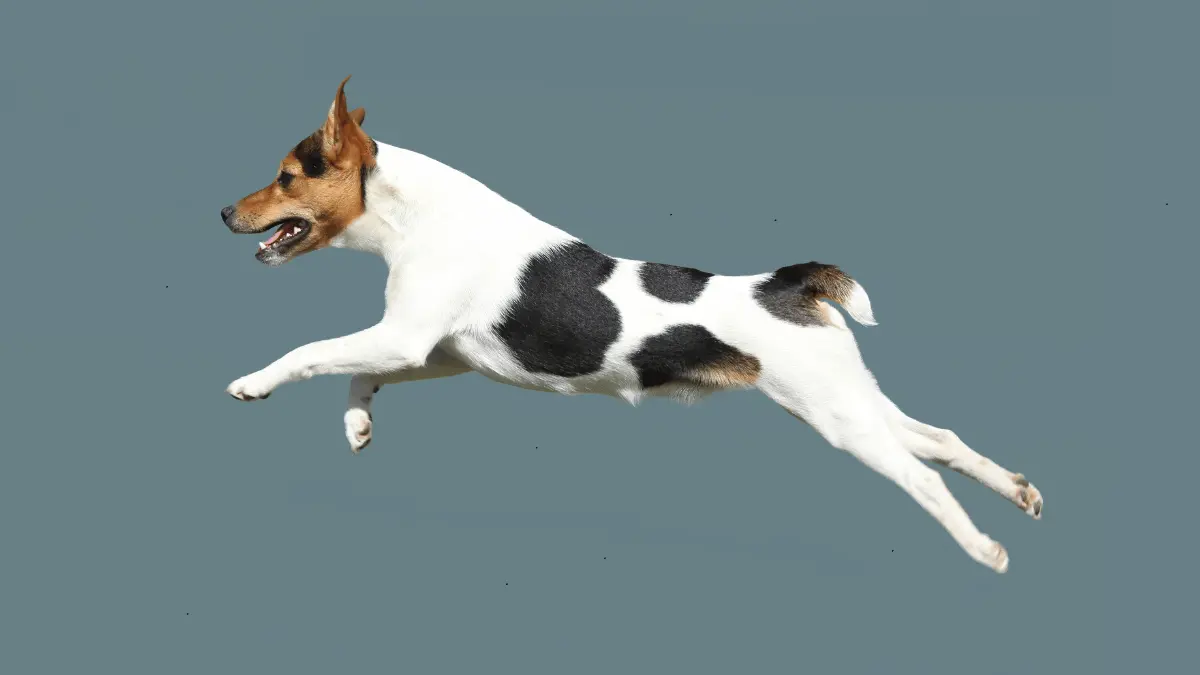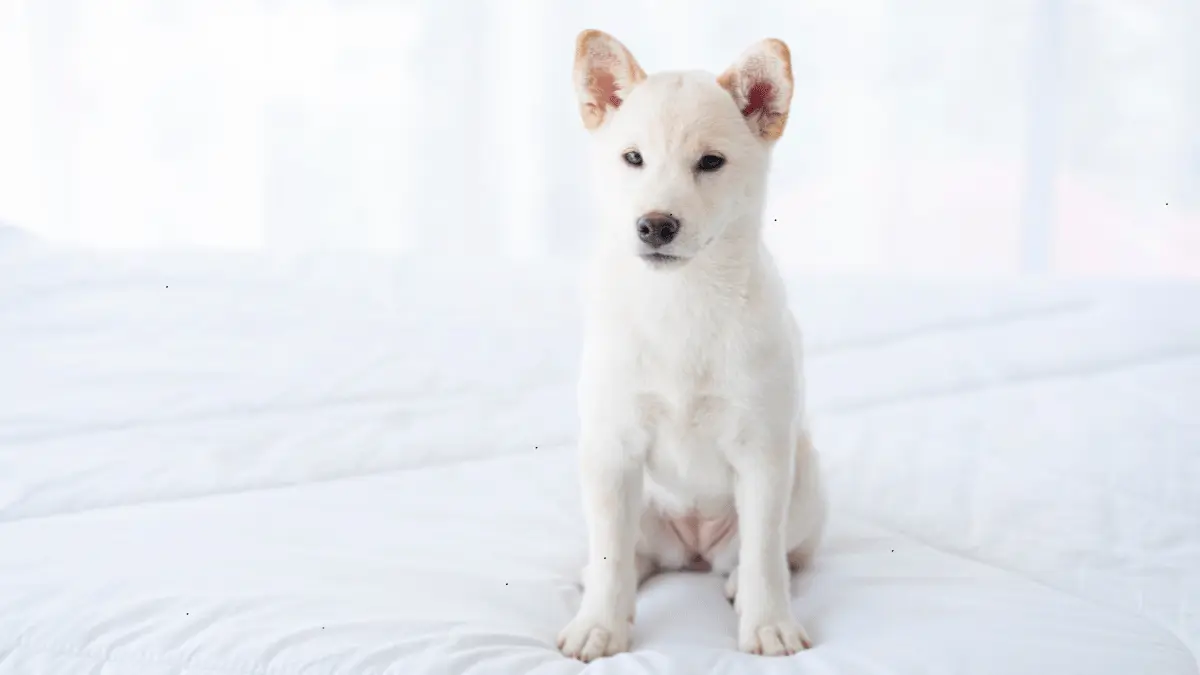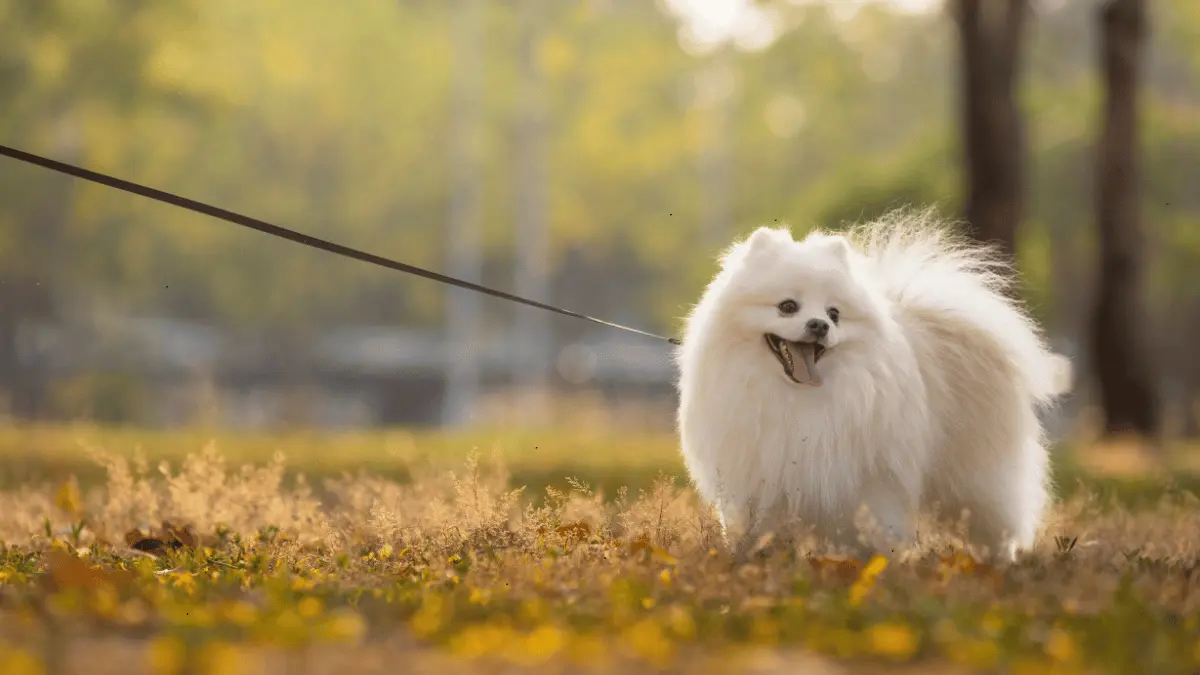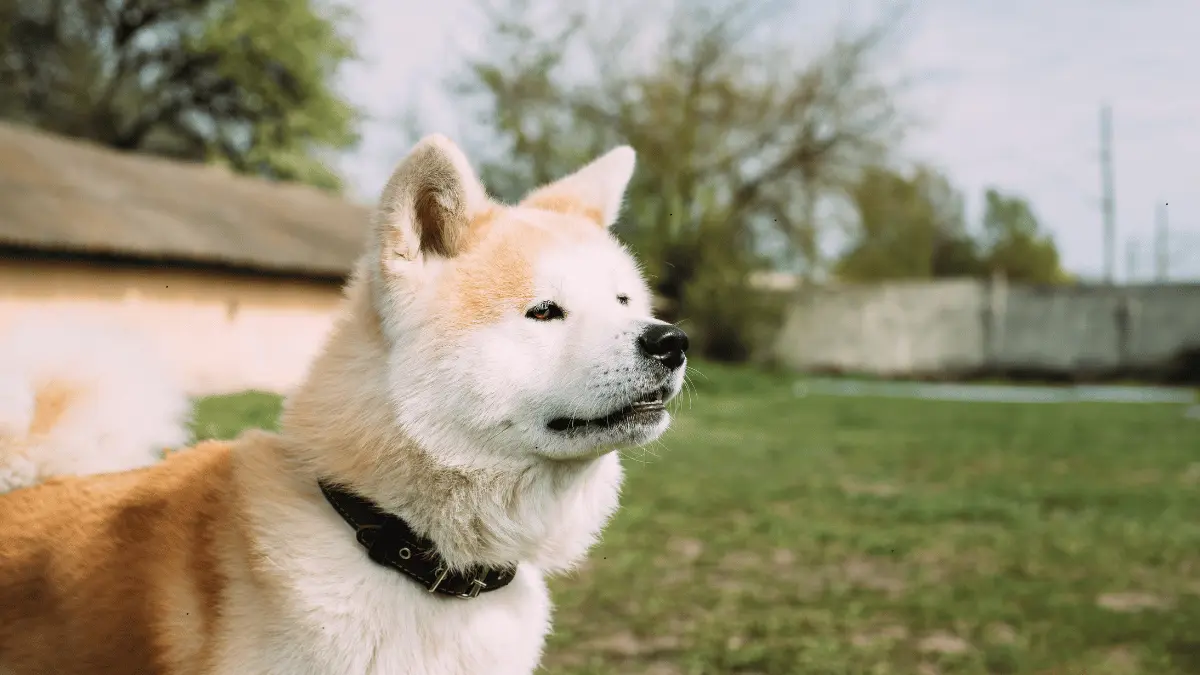Japanese Terrier Dog Breed Information
Learn about the Japanese Terrier dog breed – temperament, care, and unique traits. Ideal guide for potential owners and dog enthusiasts.
Have you ever considered adding a small, energetic, and affectionate dog to your family? If so, the Japanese Terrier might be the perfect match for you. This charming breed, native to Japan, has captured the hearts of dog lovers around the world with its playful personality and distinctive appearance.
Origin & History of the Japanese Terrier
The Japanese Terrier is a fascinating breed with a rich history rooted in the intersection of Eastern and Western canine cultures. Originating in Japan during the 17th century, this diminutive terrier is the product of careful breeding between native Japanese small dogs and European terrier breeds introduced by Dutch traders. The resulting blend of traits has created a unique and captivating canine companion.
A Rising Star in Japanese Canine Culture
As the 19th century progressed, the Japanese Terrier gained popularity among the Japanese people. Their small size, playful demeanor, and intelligence made them ideal companions for urban dwellers. The breed’s popularity reached a peak during the Meiji era, when they became a symbol of Westernization and modernization in Japan.
A Rare Treasure Today
Despite their historical significance, Japanese Terriers have become a relatively rare Japanese breed both in Japan and internationally. The challenges of preserving a small breed population, coupled with the increasing popularity of larger and more well-known breeds, have contributed to their decline. However, for dedicated terrier enthusiasts, the Japanese Terrier remains a highly sought-after and treasured companion.
Characteristics of the Japanese Terrier
Are you looking for a small, loyal, and intelligent dog to add to your family? The Japanese Terrier might be the perfect fit. This charming breed, with its unique blend of terrier spirit and gentle demeanor, has captured the hearts of many dog lovers around the world.
Understanding the Japanese Terrier
The Japanese Terrier is a petite dog, typically weighing between 5-9 pounds, with a sleek coat that requires minimal grooming. Despite their small size, they are full of energy and require regular exercise to stay happy and healthy. Their intelligence and independence make them quick learners, but they can also be a bit stubborn, so positive reinforcement training is essential.
Key characteristics of the Japanese Terrier:
- Size: Small and slender
- Temperament: Active, alert, and friendly
- Energy level: High
- Intelligence: Highly intelligent
- Affection: Loyal and loving
- Sensitivity: Sensitive to their environment
- Barking: Moderate barking, typically alerted to strangers or unusual noises.
- Grooming: Low-maintenance coat, requiring occasional brushing to remove loose hair.
- Training: Easy to train due to their intelligence, but can be stubborn at times.
- Health: Generally healthy, but may be prone to certain genetic health conditions, such as luxating patella and progressive retinal atrophy.
- Lifespan: Typically lives between 12-15 years.
- Socialization: Important for early socialization to prevent behavioral issues.
- Exercise: Requires regular exercise, such as daily walks or playtime.
- Environment: Best suited for a calm and consistent environment.
Adapting to Your Lifestyle
- Apartment Living: The Japanese Terrier’s small size and relatively quiet nature make them excellent candidates for apartment living. However, it’s important to provide them with sufficient exercise and mental stimulation, even in a limited space.
- First-Time Dog Owners: If you’re new to dog ownership, the Japanese Terrier is a great choice. Their friendly and affectionate nature, combined with their moderate energy level, makes them easy to care for. However, it’s essential to provide consistent training and socialization to ensure they grow into well-behaved companions.
- Handling Sensitive Dogs: The Japanese Terrier is known for their sensitivity. A calm and consistent environment is crucial for their well-being. Avoid sudden noises, harsh corrections, and excessive stress. Positive reinforcement training and gentle handling will help build a strong bond with your sensitive companion.
- Leaving Your Japanese Terrier Home Alone: Separation anxiety can be a challenge for many dogs. To help your Japanese Terrier cope with being alone, gradually increase the length of time they spend alone. Provide them with plenty of toys, chews, and mental stimulation to keep them occupied.
The Japanese Terrier is a wonderful breed that offers a perfect blend of companionship, intelligence, and small size. If you’re looking for a loyal, energetic, and adaptable dog, the Japanese Terrier might be the ideal choice for you.
Climate Care for Japanese Terriers
Japanese Terriers, with their delicate frames and short coats, can be particularly sensitive to extreme weather conditions. Understanding how to protect them from both cold and heat is crucial for their well-being.
Cold Weather Care
While their small size can make them seem hardy, Japanese Terriers can struggle in colder climates due to:
- Thin coat: Their short, silky coat provides minimal insulation against the cold.
- Small size: Their small body mass means they lose heat more quickly than larger breeds.
To keep your Japanese Terrier comfortable and safe during the winter months, consider these tips:
- Protective clothing: Invest in a well-fitting, waterproof coat or sweater to provide additional warmth. Look for options with reflective strips for increased visibility during low-light conditions.
- Indoor warmth: Ensure your home is adequately heated, especially in areas where your terrier spends most of its time. Provide a cozy bed or blanket to snuggle up in.
- Safe walks: Limit outdoor time during extremely cold weather and avoid icy surfaces that can be slippery and cause injuries. If you must go outside, consider using booties to protect your terrier’s paws from the cold and frostbite.
Hot Weather Care
Japanese Terriers can also be susceptible to heat-related problems. Here’s how to keep your furry friend cool during the summer:
- Hydration: Always provide fresh, clean water and ensure your terrier has access to it at all times. Consider carrying a portable water bottle and bowl when you’re out and about.
- Avoid extreme temperatures: Limit outdoor activities during the hottest parts of the day, especially if the temperature is high and the humidity is also elevated.
- Protect from direct sunlight: Provide shade or shelter to protect your terrier from the sun’s harmful rays. Never leave your terrier in a parked car, as temperatures can rise rapidly even on mild days.
- Recognize heatstroke signs: Be aware of the signs of heatstroke, which can include excessive panting, drooling, vomiting, diarrhea, and lethargy. If you suspect your terrier is suffering from heatstroke, seek veterinary attention immediately.
By following these guidelines, you can help your Japanese Terrier stay healthy and comfortable throughout the year.
All-Around Friendliness of Japanese Terriers
Japanese Terriers are known for their friendly and outgoing personalities. They are great family dogs and get along well with children and other animals. Here is a guide to their friendliness:
Is a Japanese Terrier Family-Friendly?
Yes, Japanese Terriers are family-friendly dogs. They are gentle, playful, and affectionate. They are also relatively small, which makes them a good choice for families with young children.
What Makes Them Good Family Dogs
Here are some of the reasons why Japanese Terriers are good family dogs:
- They are gentle. Japanese Terriers are not known to be aggressive or nippy. They are gentle with children and other animals.
- They are playful. Japanese Terriers love to play and are always up for a game. They are great companions for active families.
- They are affectionate. Japanese Terriers are very affectionate dogs. They love to cuddle and be close to their families.
- They are relatively small. Japanese Terriers are a small breed, which makes them a good choice for families with young children. They are also easier to handle and train than larger breeds.
How to Know if a Dog is Kid-Friendly
Here are some tips for choosing a kid-friendly dog:
- Look for a dog that is gentle and patient. Avoid dogs that are aggressive or nippy.
- Choose a dog that is playful. A playful dog will be a good companion for children.
- Consider the size of the dog. Smaller dogs are generally easier to handle and train than larger dogs.
- Meet the dog in person. Spend some time with the dog to see if you and your family like its personality.
Tips to Ensure Safety Around Children
Here are some tips for ensuring safety around children and dogs:
- Never leave a child alone with a dog.
- Teach children how to interact with dogs properly.
- Supervise all interactions between children and dogs.
- Choose a dog that is a good fit for your family.
Why the Japanese Terrier is a Suitable Choice for Families with Kids
Japanese Terriers are a good choice for families with kids because they are:
- Gentle
- Playful
- Affectionate
- Relatively small
Raising a Dog-Friendly Japanese Terrier
Here are some tips for raising a dog-friendly Japanese Terrier:
- Socialize your terrier from a young age. Expose your terrier to a variety of people, dogs, and environments.
- Train your terrier to be gentle with other dogs. Teach your terrier basic obedience commands, such as “sit,” “stay,” and “come.”
- Provide your terrier with plenty of exercise. A well-exercised dog is less likely to be anxious or destructive.
Raising a Stranger-Friendly Dog
Here are some tips for raising a stranger-friendly Japanese Terrier:
- Socialize your terrier from a young age. Expose your terrier to a variety of people, dogs, and environments.
- Train your terrier to be calm and relaxed around strangers. Teach your terrier basic obedience commands, such as “sit,” “stay,” and “come.”
- Reward your terrier for being friendly to strangers. Give your terrier treats and praise when it greets strangers politely.
Additional Tips
Here are some additional tips for raising a friendly Japanese Terrier:
- Provide your terrier with plenty of mental stimulation. This will help to keep your terrier happy and well-adjusted.
- Be patient and consistent with your training. It takes time to train a dog. Don’t get discouraged if you don’t see results immediately.
- Love your terrier unconditionally. A loving and supportive home is the best way to raise a friendly and well-adjusted dog.
I hope this article helps you to learn more about Japanese Terriers and their friendliness. If you are considering getting a Japanese Terrier, I encourage you to do your research and make sure that this breed is a good fit for your family.
Health and Grooming Needs
Japanese Terriers are renowned for their low-maintenance grooming requirements. Their short, smooth coat typically requires only brushing once or twice a week to remove loose hair and keep their coat healthy and shiny. Occasional baths are sufficient, especially during seasons of heavy shedding.
Key Grooming Tips:
- Regular brushing: Helps prevent matting and keeps the coat looking its best.
- Nail trimming: Check your dog’s nails regularly and trim them as needed to prevent discomfort and injury.
- Ear cleaning: Gently clean your Japanese Terrier’s ears with a veterinarian-approved ear cleaner to prevent infections.
- Dental care: Daily toothbrushing and regular veterinary dental check-ups are essential for maintaining good oral health.
Managing Drooling in Japanese Terriers
While drooling is not a common issue for Japanese Terriers, excessive drooling can be a sign of an underlying health problem. If you notice your dog drooling more than usual, it’s important to consult your veterinarian for a thorough examination.
Recommended Health Screenings
To ensure your Japanese Terrier’s optimal health, consider the following recommended health screenings:
- Annual physical exams: Regular check-ups with your veterinarian are crucial for early detection of any health issues.
- Heartworm testing: Prevent heartworm disease by administering monthly preventative medication and regular testing.
- Dental check-ups: Regular dental cleanings and examinations can help prevent periodontal disease.
- Eye exams: Check for glaucoma, cataracts, and other eye conditions.
- Genetic testing: Some Japanese Terriers may be predisposed to certain genetic health conditions. Consult with your veterinarian to determine if genetic testing is appropriate.
Weight Management Tips
Maintaining a healthy weight is essential for your Japanese Terrier’s overall well-being. Here are some tips to help prevent obesity:
- Portion control: Feed your dog a balanced diet in appropriate portions based on their age, size, and activity level.
- Quality food: Choose a high-quality dog food that provides essential nutrients without excessive fillers.
- Regular exercise: Daily walks, playtime, and other physical activities can help burn calories and keep your dog fit.
- Monitor intake: Be mindful of treats and table scraps, as these can contribute to weight gain.
By following these grooming and health guidelines, you can help your Japanese Terrier live a long and healthy life.
Trainability of Japanese Terriers
Japanese Terriers are known for their playful, intelligent, and energetic personalities. To fully enjoy their companionship, it’s essential to provide them with proper training and mental stimulation. This article will guide you through the training process, addressing common behavioral challenges and offering practical tips for a harmonious relationship.
Basic Dog Training Guidelines
- Positive Reinforcement: Use rewards like treats, praise, or playtime to encourage desired behaviors.
- Consistency: Maintain a consistent approach to training to avoid confusion.
- Patience: Training takes time. Be patient and celebrate small victories.
- Socialization: Expose your Japanese Terrier to various people, dogs, and environments from a young age.
Step-by-Step Training for Obedience and Behavior
- Basic Commands: Teach your terrier essential commands like “sit,” “stay,” “come,” “down,” and “heel.”
- Leash Training: Start with short walks and gradually increase the duration.
- House Training: Use positive reinforcement and crate training to help your terrier learn to eliminate in the right place.
- Barking: Teach your terrier the “quiet” command to manage excessive barking.
Mental Stimulation for Your Terrier
- Puzzle Toys: Engage your terrier’s mind with puzzle feeders, treat-dispensing toys, and interactive games.
- Training Games: Practice different tricks and commands to keep their brain active.
- Scent Work: Introduce your terrier to scent training exercises to stimulate their natural instincts.
Dealing with Biting and Mouthing
- Redirect: Offer a chew toy or a different object when your terrier bites or mouths.
- Time-Outs: Remove your terrier from the situation for a short period when they engage in unwanted behavior.
- Professional Help: If biting becomes excessive or harmful, consult a professional trainer or behaviorist.
Managing High Prey Drive
- Leash Control: Always keep your terrier on a leash in areas where wildlife may be present.
- Training Exercises: Practice recall and obedience commands in distraction-filled environments.
- Mental Stimulation: Provide plenty of mental stimulation to keep your terrier’s mind occupied.
Handling Other Behavioral Concerns
- Separation Anxiety: Gradually increase the time you spend away from your terrier to help them adjust.
- Fear-Based Behaviors: Consult a professional trainer or behaviorist to address underlying fears and anxieties.
- Digging: Provide your terrier with designated digging areas and plenty of exercise.
Dealing with a Vocal Dog
- Identify Triggers: Determine what causes your terrier to bark excessively.
- Training: Teach your terrier the “quiet” command and practice it in various situations.
- Environmental Modifications: Address any underlying issues that may be contributing to barking, such as boredom or anxiety.
Safety Tips for Wanderlust Dogs
- Secure Fencing: Ensure your yard is adequately fenced to prevent your terrier from escaping.
- Microchipping: Microchip your terrier to help identify them if they get lost.
- Leash Laws: Always comply with local leash laws and keep your terrier on a leash when outside.
- Training: Practice recall and obedience commands to prevent your terrier from running away.
Japanese Terriers make wonderful companions, but they require consistent training and mental stimulation to thrive. By following these guidelines and addressing potential behavioral challenges, you can build a strong and loving bond with your energetic terrier.
Exercise Needs for Japanese Terriers
Japanese Terriers are known for their lively and energetic personalities. To keep them happy and healthy, it’s essential to provide them with adequate exercise. This breed thrives on physical activity and mental stimulation.
Exercise Requirements for Active Dogs
Japanese Terriers are high-energy dogs that require daily exercise to stay fit and content. A lack of physical activity can lead to behavioral issues, such as boredom, anxiety, and destructive behaviors.
Training for High-Intensity Dogs
Training is crucial for Japanese Terriers due to their high energy levels. Positive reinforcement techniques, such as reward-based training, can help you teach your dog obedience commands and proper behavior. Consistency is key to effective training.
How Much Exercise Does a Japanese Terrier Need?
A general guideline for Japanese Terriers is at least 30-60 minutes of daily exercise. This can be broken down into shorter sessions throughout the day. A combination of physical activity, like walking, running, or playing fetch, and mental stimulation, such as puzzle toys or training sessions, is ideal.
Maximizing Playtime
- Dog Parks: Socialize your Japanese Terrier at dog parks to interact with other dogs and people.
- Hiking: Explore nature trails and go hiking with your furry friend.
- Agility Training: Enroll your dog in agility classes to challenge their physical and mental abilities.
- Interactive Toys: Provide puzzle toys, treat dispensers, and other interactive toys to keep your dog mentally engaged.
- Play Dates: Arrange play dates with other dog owners to provide your Japanese Terrier with companionship and exercise.
Remember: Always consult with your veterinarian to determine the appropriate exercise level for your individual dog, especially if they have any underlying health conditions. By providing adequate exercise and mental stimulation, you can ensure a happy and healthy life for your Japanese Terrier.
The Japanese Terrier is a delightful and unique breed that offers a wealth of companionship and joy. Their playful personalities, affectionate nature, and relatively low maintenance requirements make them a wonderful choice for many dog lovers. If you’re looking for a small, energetic, and loving companion, the Japanese Terrier may be the perfect addition to your family.
Japanese Terrier FAQs
How much does a Japanese Terrier cost?
The cost of a Japanese Terrier can vary depending on the breeder, the dog’s lineage, and the location. However, you can expect to pay anywhere from $1,000 to $3,000 for a Japanese Terrier puppy.
Are Japanese Terriers rare?
Yes, Japanese Terriers are considered a rare breed of dog. There are only a few thousand Japanese Terriers in the United States.
What is the lifespan of a Japanese Terrier?
The average lifespan of a Japanese Terrier is 12 to 15 years.
What are the health issues with Japanese Terriers?
Japanese Terriers are generally healthy dogs, but they can be prone to the following health issues:
- Legg-Calvé-Perthes disease
- Patellar luxation
- Progressive retinal atrophy
Do Japanese Terriers shed?
Japanese Terriers are considered to be a low-shedding breed of dog. However, they will still shed some hair, especially during the spring and fall.
Are Terriers very smart?
Yes, Terriers are known to be very smart dogs. They are quick learners and are often used in dog agility competitions.
What does a Japanese terrier look like?
Japanese Terriers are small dogs with a long, silky coat. They have a black and tan coat pattern.
Do Japanese dogs shed?
Yes, Japanese dogs shed some hair, but they are not considered to be heavy shedders.
Can a terrier live 20 years?
While it is possible for a Terrier to live 20 years, the average lifespan of a Terrier is 12 to 15 years.
What is the temperament of a terrier dog?
Terriers are known to be energetic, intelligent, and independent dogs. They are also known to be vocal dogs.
Do terrier dogs like to cuddle?
Terriers are not typically known to be cuddly dogs. However, some Terriers may enjoy cuddling with their owners.
Do Terriers get jealous?
Yes, Terriers can get jealous, especially if they feel like they are being neglected.
Can Terriers be left alone?
Terriers are not typically recommended to be left alone for more than a few hours at a time. They can become bored and destructive if they are left alone for too long.
Further Reading
For more information about Japanese Terrier, you can refer to the following articles:
- American Kennel Club – Japanese Terrier: This article discusses the breed’s history, characteristics, and care requirements. Link
- Wikipedia – Japanese Terrier: This article discusses the breed’s origins, physical traits, and temperament. Link
- Tαιga Japanese Terriers: This article discusses the breed’s history, standard, and temperament. Link
- UKC Dogs – Japanese Terrier: This article discusses the breed’s history, characteristics, and standard requirements. Link
- Royal Canin – Japanese Terrier: This article discusses the breed’s history, characteristics, and care requirements. Link
- Dogtime – Japanese Terrier: This article discusses the breed’s origins, physical characteristics, and temperament. Link
- Dogster – Japanese Terrier: This article discusses the breed’s history, characteristics, and care requirements. Link















